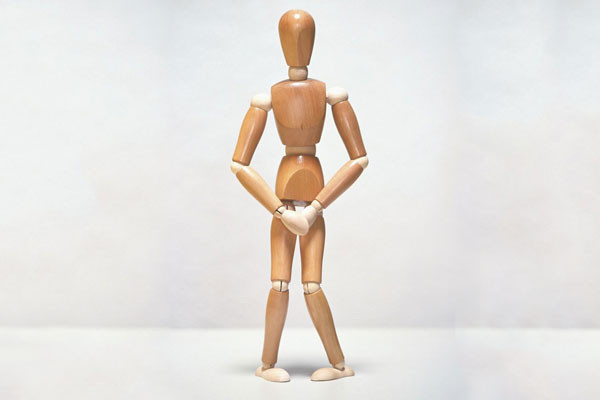
Trying to lose weight? Be careful not to lose muscle

Is your skin problem actually an autoimmune condition?

People with diabetes face higher risk of hearing loss

Antibiotic-free fixes for recurrent UTIs

Musculoskeletal syndrome of menopause: When menopause makes you ache all over

When can older women stop getting mammograms?

To lose weight, especially harmful belly fat, combine diet and exercise

Can men hold off on treating recurring prostate cancer?

The 7 types of rest and why we need them all

What are the early warning signs of cervical cancer?
Men's Health Archive
Articles
Dealing with thick, discolored toenails
Nail fungal infections affect up to 14% of the adult population. While completely curing these infections is difficult, the right treatments can discourage the problem from spreading and make your nails look better.
Prostate cancer: A new type of radiation treatment limits risk of side effects
A new technique for prostate cancer treatment can limit side effects from radiation therapy. It relies on specialized types of medical imaging scans that allow doctors to visualize the cancer during treatment.
FDA approves new over-the-counter gel for erectile dysfunction
The FDA has approved an over-the-counter topical gel to treat erectile dysfunction that men apply immediately before intercourse. It works in approximately 10 minutes.
Rethinking PSA testing
Prostate-specific antigen (PSA) screening can help identify early prostate cancer, but it also can lead men to have biopsies and invasive treatments they may not need. This complexity has caused the medical community to re-evaluate how best to use PSA testing. More doctors are using PSA screening in ways that minimize the use of biopsies, such as by following a worrisome test result with MRI of the prostate. If a man does have a biopsy and a cancer is found, PSA testing can help the man follow active surveillance.
Skin in the game: Common skin problems and solutions for men
Dry skin and athlete's foot affect many men. There are several treatment options for both conditions, and steps you can take to prevent them from occurring or returning.
Try these techniques to relieve common urinary symptoms without medication
Men with mild-to-moderate symptoms of benign prostatic hyperplasia can try a conservative approach called watchful waiting. Behavior changes can help control symptoms. If these don't work, a discussion with a doctor about drugs or surgery is in order.
Prostate cancer: An emerging surgical alternative shows promise in older men
In some men with localized prostate cancer, focal therapy is an alternative to radical prostatectomy. This procedure removes only the cancerous part of the gland, and growing evidence shows it can be an effective strategy.
Watch out for tainted sexual enhancement products
According to the FDA, many sexual enhancement products sold online and over the counter may cause potentially serious side effects and interact with other medications or dietary supplements.
Diet and prostate cancer
Eating a plant-based diet like the Mediterranean, MIND, or DASH diet has been shown to help people lose weight and lower their risk for heart disease and diabetes. But such a diet may also help men lower their risk for prostate cancer or help slow the spread of existing prostate cancer. The connection may be due to high consumption of inflammation-fighting fruits, vegetables, and fatty fish, and the fact that people who follow a plant-based diet eat less red meat and processed foods, high intakes of which are associated with cancer risk.
Stomachs growl, noses run, and yawning is contagious: Ever wonder why?
There are things our bodies do so often and so automatically that we barely notice them. Yawning, growling stomachs, and runny noses are good examples. Each is a universal part of our daily human experience — but did you ever wonder why?

Trying to lose weight? Be careful not to lose muscle

Is your skin problem actually an autoimmune condition?

People with diabetes face higher risk of hearing loss

Antibiotic-free fixes for recurrent UTIs

Musculoskeletal syndrome of menopause: When menopause makes you ache all over

When can older women stop getting mammograms?

To lose weight, especially harmful belly fat, combine diet and exercise

Can men hold off on treating recurring prostate cancer?

The 7 types of rest and why we need them all

What are the early warning signs of cervical cancer?
Free Healthbeat Signup
Get the latest in health news delivered to your inbox!
Sign Up











